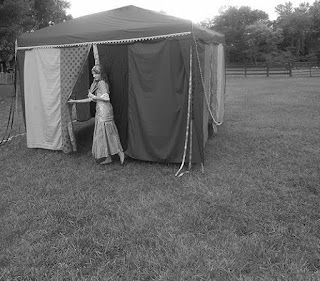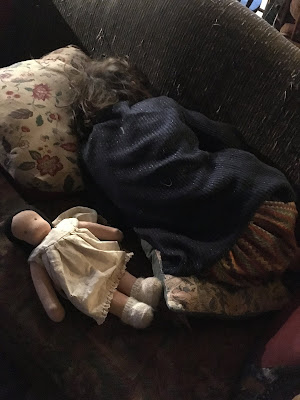Locality and Social Media
One
struggle in modern life that is clearly our generations’ battle is the advent
of social media, in so many ways a joy: in other ways, a distraction that
leaves television and video games in the dust as a time suck, at least for this
woman writer. With fierce conviction I kept television and screens to a minimum
in our house, but my own iPhone appears super-glued to my palm, and I find, to
my horror, that like Bilbo Baggins and the Ring of Power, I can’t seem to leave
it behind: I keep putting it in my pocket.
Insidiously,
my problem began as most do, with the corruption of an innocent love. One of
the treasures of my life has been dozens of far-flung friends, connections from
school and previous homes that are precious pearls. To find them all on social
media was thrilling: the chance to share lives with them again, to feel less
lonely, to encourage them, to interact again was a delight. But the newness has
worn down to a troubling addiction to news feeds and notifications and I find
myself a poor model for my own children. Here is where I begin my struggle. Now
that the global world is demanding my time, attention, and prayers, how do I
prioritize? I believe the poverty of locality is where we begin.
Once you
begin to look at the matter, you see that Mother Church has been unrelenting on
her insistence on geography and proximity. The sacraments must be offered and
received face to face. One cannot hear confession by avatar. Parishes are
geographical: one must live in a certain area to call a certain church home.
Christ said, “Love your neighbor,” meaning love the one who is geographically
close to you. He could have said, “Love humanity,” but instead He chose a word
that indicates (in the singular) the person proximate to you. I don’t think
this is accidental, any more than it was an accident that the sacraments are
set up in such a way that none of them could ever be received online. The
sacraments, like the love in the greatest commandment, require proximity to be
operative. In an online age, Christ and Church emphasis real, face-to-face interaction
over the virtual or the avatar.
Neighbors
are odd things in todays’ society, a stubborn reminder that geography exists.
In a world where it’s suddenly become easy to choose friends, we rarely get to
choose neighbors, and we mostly resent them, and likewise. But our test of love
is how much we love those whose dogs chase our children, whose teenagers leave
tire marks on our lawns, whose music and clothing choices we critique from
behind our blinds. My parents taught me to be pro-actively cheerful and
conciliatory with neighbors: choose to initiate positive interactions with them
to offset the unchosen negative interactions with them that are bound to occur.
Choosing
your neighbors is a circumcised choice. Radical choice—moving to live only with
neighbors you have chosen and befriended—seems to rob us of the grace of
randomness, of letting the Holy Spirit choose our neighbors. Radical choice
often backfires: how often have friends moved to be closer to friends only to
quarrel and alienate those very friends?
There is a
grace in choosing to befriend those you would not choose as friends, but you
choose to make them friends because they are proximate to you—just as there is
grace in befriending your brother or sister who was chosen for you by birth. I
am reminded of Chesterton’s image of a man climbing down a random chimney and
trying to get along as best as he can with the people he finds there “because
that is what each of us did when we were born.”
And
certainly, living gracefully with family members is the most certain test of
true charity I know: if you can courageously and consistently love those relatives
who live with you or near you, you are surely on the path to virtue.
There are
two ways to make a community: to move to a place where community already exists
and join in, which is what many in the intentional community movements of the
70s and 80s did, or to build community around yourself by evangelizing all
those around you with an aim to begin a community. One can go as a missionary
to a far-off land or one can be a missionary at home, in the terrible chasms
that separate family member from family member, gorges deepened by experience,
in the mazes of known neighbors. This is how St. Therese of Lisieux could be a
missionary in one convent with random relatives and strangers clustered around
her: the human heart is as much a labyrinth as the jungles of South America and
Asia. So we learn to accept what God has designed for us in birth, genes,
environment. My hunch is we are in better shape when we leave the radical
choices to God, though He may call us to make them some at times.
How much
time to I give to my children, my neighbors, my fellow parishioners, the people
whose lives intersect with mine, compared to time given to email, Instagram posts,
messaging, and the like? If time is a measure of my love, where is my love
spent? Again, Mother Church offers us another chance to redeem the time: an
hour spent in proximate distance to the Lord of the Universe, Her Bridegroom,
under the appearance of lowly bread. Spending time with Bread; the Bread of
Life, being His neighbor for at least an hour. As we set out to number our time
rightly, to gain wisdom of heart in living our lives, we may as well begin
there.



Comments